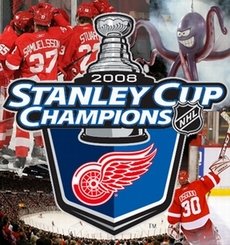What's become my traditional Labor Day post... a re-run from two years ago:
Labor Day
Today is the day we celebrate "Labor Day" which, in times past, was a true celebration of American Labor. And by that I mean the people who manipulate the "means of production"… the guys and gals who go out and get their hands dirty making this country work, day in and day out. But "Labor" as both term and concept has become perverted over the past few years. Actually… Labor has become politicized and has only a shadow of the meaning it used to carry, back in the day. Who among us doesn't think of unions when one says or hears the word "Labor" today? Not many of us, I would wager.
I will resist the temptation to turn this post into an anti-union screed, and said temptation is strong indeed, Gentle Reader. But let me just say this about that… I'm of the opinion that labor unions are the root ofallmost evil in our post-industrial society. I'll grant you labor unions have a glorious history and were responsible for righting numerous wrongs in the early 20th century (you can begin reading here if you're not up on the good unions accomplished during that time). But like the buggy whip, their time has passed. What we get from our unions today are things like "card check" —a decidedly UN-American renunciation of free elections in the workplace— and outright political intimidation (can you spell S-E-I-U? Sure you can…). I'm not seeing much good in that… and neither are most other Americans, as Ed Morrissey notes in this Hot Air post. But let us not digress further; I'm sure you get my point.
I'm thinking an appropriate manner in which to observe Labor Day would be to spend a few hours watching re-runs of Mike Rowe's "Dirty Jobs." About which... the Discovery Channel is running an all-day marathon of "Dirty Jobs" episodes... or you could watch the DVDs. If you don't have access to either the Discovery Channel or the "Dirty Jobs" DVDs, you might want to watch his (Rowe's) 20-minute lecture on"Dirty Jobs" at TED.com. Mr. Rowe celebrates "labor" as it used to be… manual labor as an honorable pursuit infused with dignity. As it should be. And that's what I'm on about here, Gentle Reader.
Or perhaps today might be spent reading a book like "Shopcraft as Soulcraft." The NYT published a review of this book earlier this year, which starts out pretty well but descends rapidly into a typical NYT snarky book review (on subjects of this nature, of course. Not all of their book reviews are worthless, just some. Or most… depending on your POV.). Here's the best part of the review:
It’s especially appealing when you add that Mr. Crawford has a Ph.D. in political philosophy from the University of Chicago and was a postdoctoral fellow — he had an office next to the novelist J. M. Coetzee’s — on the school’s Committee on Social Thought. Mr. Crawford is an intellectual who can probably take you in a bar fight.
Many of the ideas in “Shop Class as Soulcraft” are deeply resonant. Mr. Crawford mourns that shop classes were largely eliminated from American high schools in the 1990s because they are expensive to run, and sometimes dangerous. He takes this as a symptom of a larger problem: We have, as a people, lost our fundamental manual competence. We can no longer fix our own stuff, and we are increasingly steering our kids “toward the most ghostly kinds of work.”
His book, he writes, “advances a nestled set of arguments on behalf of work that is meaningful because it is genuinely useful. It also explores what we might call the ethics of maintenance and repair.”
Mr. Crawford builds his framework by walking us through the soul-killing nature of too much white-collar work; he surveys the “rising sea of clerkdom” that surrounds us. He considers the work of Marx, Heidegger and Iris Murdoch, among other philosophers. He points out, accurately enough, that “when things get really hairy, you want an experienced human being in control.” He connects the current mortgage crisis to the depersonalization of white-collar work.
This is not “Zen and the Art of Motorcycle Maintenance” Part 2. Mr. Crawford isn’t particularly interested in the nonrational mind. “I want to avoid the kind of mysticism that gets attached to ‘craftsmanship,’ ” he writes, “while doing justice to the very real satisfactions it offers.”
You would be forgiven, Gentle Reader, if you didn't chase the link and read the rest of the piece, which is in the end dismissive at best or borders on character assassination, at worst. I'd rather you spent that time watching the little piece below (from last Friday's "News Hour with Jim Lehrer"), where Mr. Crawford speaks his mind on what we're on about here. It's great good stuff.
Seven minutes ain't that much time to waste, is it?
And… Happy Labor Day… Drink beer, barbeque, and have a great time!
I added this subject-appropriate tune last year and it ain't a bad ideer to do this year, too:
I've known that girl. Loved her, too.




.jpg)




Back atcha.
ReplyDeleteTook the words right out of my mouth.
ReplyDeleteI very often get the sense that this is what all the "right vs. left" arguing is really all about: The people who make things work, are setting aside the time (under protest) to step into the marble halls where the rules are made, and make themselves heard.
The people who do not make things work, are feeling abused because of this. I'm sure when you've had a monopoly on those halls of power it must feel that way. And I'm sure when you see those people who make things work, have a whole different way of seeing the world, it must feel like they're the stupid ones. But you see, there's the problem, that word...feel. You can't make something run and work and deliver useful things, by feeling. You have to think to do that. So who's smart & who's stupid, kind of misses the point.
My big beef with labor unions? They tend to be run by people who don't actually produce anything. Oh sure, the union leadership might have been just more guys on the assembly line once upon a time...but whenever I get to inspect the biography of a "union official" it turns out he's been off that factory floor for a few years or decades. They tend to be non-producers, just living off dues. And they solve problems by feeling. Very often, with the end result that they win the argument...and the company goes broke.
Morgan: Your last line pretty well sums it up.
ReplyDelete